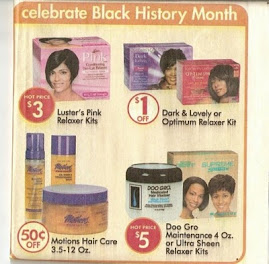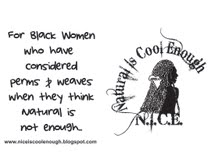Recently, at a showing of Chris Rock's Film Good Hair at the University
of Miami, students were given the opportunity to participate in a
writing contest by writing a review of the film. There were two
winners. The first place winner was Christopher Pinto (depicted below)who will receive the Africana
Studies Program's Fannie Lou Hamer Award on November 27 at a Reception in his honor along with the second winner. Congratulations Chris! Your writing and analysis of the film is
excellent and N.I.C.E. Salutes you! Please enjoy his winning entry below.
After supposedly gaining Civil
Rights in the United States, African-American warriors for equality began their
removal of the centuries’ long ideological degradation of the Black Community.
With three simple words they hoped to instill and inspire their generations,
and all that followed, to embrace the internal and external magnificence of being
African-American. Black is Beautiful. While such a basic concept, its power
cannot be denied. This public affirmation, after centuries of systematic,
ideological abuse and the indoctrination that the color of their skin was the
reason they were being subjugated, came as a long overdue awakening. Black
people no longer needed to conform to white standards of beauty. They were
given this amazing gift to allow the attributes that God and nature had given
them to be the new definition of beauty in their community. Thus, it is so
disillusioning that the Black Community shunned this view and still embraces the
standards of beauty that white supremacy deigned to them.
Chris Rock’s film “Good Hair” examines
the role of hair in Black America and how the standards for what qualifies as
“Good Hair” still adheres to being white hair. Particularly for the women of this
group, hair that is considered natural or nappy is unfavorable. Straight hair
and hairstyles of white women are what is viewed as the most attractive type of
hairstyle. The effect of this view
manifests itself in various forms.
The most common way for black women to
achieve hair similar to white women is to have “weave” or an outside extension put
in. As Rock discovers, weave is extremely expensive, on average costing between
$1,000 and $3,500. Even women who cannot reasonably afford weave will sacrifice
necessities to have the extension done. The Black Community has always
accounted for a disproportionate amount of socio-economic disparity. As Rock
examines, weave is one of the constructs which maintains this disparity. Women
are using money that could be used for food, children’s needs, and even
schooling in order to support their hairstyles. On an opposite note, many black
women have broken into the ranks of professionalism and earn more than enough
to support their weave habits. While these women may not feel the economic
struggle directly, they have portrayed an image to White America; that an
educated black woman must have “white hair” or weave. They are the perpetrators
who make it so much more difficult for qualified women with natural hair to
succeed in the business world, solely because they don’t project the image of a
black professional woman.
Still on an economic note, Rock points out
that the weave industry is dominated by Asians and Asian-Americans. The
products that Black America uses for their hair are most often sold through
white companies. In a market solely based on African-American money, the
community sees very little of that return. As happens in economics, this
monopoly of the weave market leads to massive exploitation.
Rock examines the social effect of black
hair standards as well. Black men feel that there is a lack of intimacy with
their wives and partners because they aren’t able to touch their hair, as they
do with women of other races. Women also teach their daughters at a young age
to conform to these white standards of beauty. Rock interviewed a toddler
receiving a perm, and while she was able to say that the process would make her
beautiful, she didn’t understand why straight hair is considered beautiful.
Indeed, many women who have bought weave their whole lives don’t understand why
doing so makes them “beautiful” they just buy into the theory that it does.
Rock’s “Good Hair” should then serve as a
cry to the Black Community. From its very roots, both hair and historical, this
industry and ideology has only served as a structural restraint of natural
African beauty. Until Black America sets the example for change, this cultural
genocide will continue to prevail and enslave future generations.













1 comment:
Post a Comment